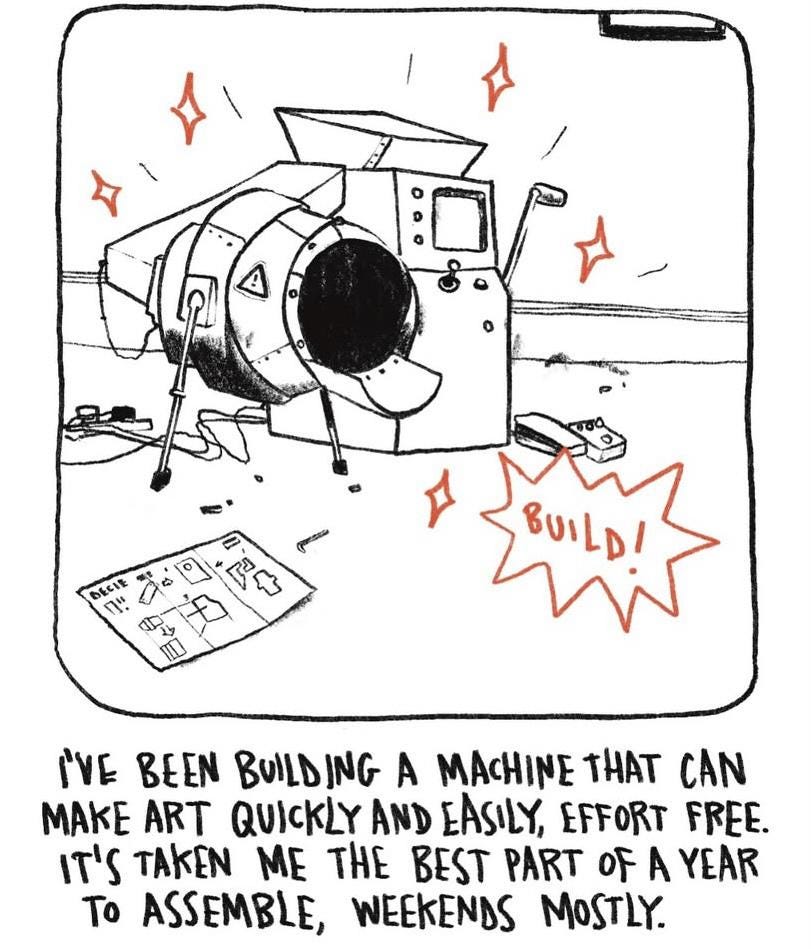Before infants say words, they learn the dance of conversation. Whoever looks after them talks to them and then waits for them to respond. Then the adult says or does something – a questioning tone, a look of surprise, breaking into a smile – in return. This seems to happen naturally.
This is called proto-conversation. It establishes a bond between the baby and their carer. It develops an early understanding of social cues and the give and take of relatedness. It develops a child’s understanding of language by exposure to the rhythms, tones and structures of conversation.
It’s a game, a partnering, a mirroring, and it is set to the music of language. It is a tango in which a self is developed - self being an ordinary sense of personal existing. The ‘self’ is not a pre-existing, essential ‘thing’, but a process. And self-esteem is an internal state that was first a relational state – the one marked by that early proto-conversation, in which the caregiver responded to and gave expression to the baby’s ‘aliveness’ and ‘positive feeling’.
This is where, if they are lucky, humans discover joy for the first time: in responsive, intimate company.

I learned these things from the book I’m currently reading, which is called The Poet’s Voice in the Making of Mind, which was written by a professor of psychiatry called Russell Meares. Meares died last year, and from an article written after this death, I discovered that his first love was modernist literature. In this book, he is making a case that poetic language leads to the shaping of a self.
The book is academic and I can only read it in small sips, progressing very slowly through the concepts. But here’s where the interest lies: in poetry’s unique (I think) ability to express what is inexpressible.
I read here about ‘little emotions’, those that are ‘swamped’ by bigger emotions or that are ‘neglected as inexpressible’.
‘The possibilities of emotional connection are enhanced when the other finds a way of “picturing” one’s states for which there may not be precise words,’ Meares writes.
There is a magical example in the book of a boy of three-and-a-half using creative language to reflect his inner experience to the outside.
He is walking with his mother past a room from which come the sounds of men who are drinking. He says to his mother, not having full command of consonants: ‘Dem boys got dirty boices.’ Using the analogy/metaphor of ‘dirty’, he represents the feeling invoked in him by the coarse male voices. The choice of ‘dirty’ implies a complexity of feeling.
The positive way in which is mother reflects his experience back to him creates a form of relatedness.
‘His mother laughed and said “yes” in a way that made him feel that he had been understood.’
Meares says that little emotions are the ‘coins of intimacy’.
Little emotions are the coins of intimacy
Poetry has to do with ‘the impossibility of talking’ (Enrique Winter) and ‘speaking the unspeakable’ (Seni Seneviratne).
It’s the little emotions that are unsayable – the ones that get no airtime amid the thundering of anger and the cowering of fear – that, when expressed metaphorically and are understood, give breath to relational depth.
It’s the little emotions – and the teeny-tiny moments when nothing and everything happens, like a boy thinking drunk men’s voices are dirty – that make poetry so useful for apprehending the blaring confusion of the world.
The sweet and helpful Too-Ticky, friend of the Moomin family, says ‘It’s a song of myself…the refrain is about the things one can’t understanding…’
And it is the little emotions, too, that sometimes change the world. In his poem ‘Oceans’, Juan Ramón Jiménez, captures both a little emotion and it’s everything-nothing effect on the universe:
I have a feeling that my boat
has struck, down there in the depths,
against a great thing.
And nothing
happens! Nothing... Silence...Waves.
—Nothing happens? Or has everything happened,
and are we standing now, quietly, in a new life?
If the language of poetry is of interest to you, you might be interested in listening to any one of Alice Oswald’s poetry lectures at Oxford University. Yesterday, I listened to Anonymous and Onymous. They require all your attention, but they are deeply rewarding.

A comic-draw-er (as he calls himself) that I follow on Instagram, Joe Decie, did four panels that sum up artists’ and writers’ disgust with artificial intelligence, which you can see if you click on his name above.
I had so much feedback when I wrote about why I won’t use generative AI two weeks ago. Many wrote to me privately to say that they use AI but feel conflicted. Some said they use AI, but they hadn’t thought of it the way I did, and now they were reviewing their positions. I didn’t expect that much feedback, frankly. And no one bawled me out, which I know doesn’t mean everyone agreed with me.
Anyway, I’m still here and still human, still producing things the old-fashioned, long-hand, slow and fallible, cross-checking way. If you like things human and real and regular and reliable, please consider a free or paid subscription to support Love Letter.
Because bots can’t do love.
Only humans can.
Lots of love,
as always,
K.




This is a beautiful reflection. I've been thinking about AI quite a lot, because it's becoming a reality where I teach, I have used it for my students to help trein them for the standardised writing exams they have to do for English level certificates. It's used not to write then but to evaluate and give feedback and for that it works very well. But I always stress that they must not confuse the linguistic units required for a good exam essay as a replacement for what is interesting writing, abd thus also not confuse the language AI produce as anything but standardised writing.
Then last week I saw two live music 'concerts'. One was a young Italian group of three, two guys and a girl, that played on two guitars and used all kinds of things for drums - there was a chemistry among the band members that made the music itself feel magical. The other was a brass marching band that usually plays at protests and manifestations, here was the fundraiser and solidarity for Palestine. My thoughts was then that no matter how smart AI can be, it cannot beat the magical chemistry in a room full of people creating something, it cannot capture the humanity, the energy and certainly can't bring compassion and solidarity to the table. While it can reproduce language quite well, it can't be what poetry and those communications you mentioned here of a boy calling voices dirty. I very much appreciate your very human writing. Thank you Karin.
Thank you Karin for this delightful offering. Yes! to your own thoughts, over and over. Also appreciate the reminder of how much I love the Moomins, and the nudges towards Alice Oswald's lectures (in which I've not yet indulged, just a quick listen to check her voice - which is definitely not dirty, so I look forward to those treats in store) and Joe Decie, whose drawings are so good and his humour remarkably gentle for thoughts with such sharp edges. You do love very very well.